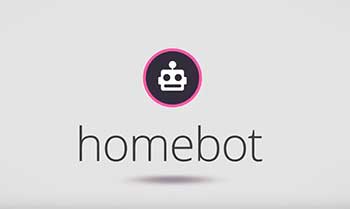If you’re a homeowner, you’ve probably wondered how much your home is worth. Getting an accurate home valuation used to require hiring a professional appraiser, but now there are AI-powered tools that can provide an estimate instantly online. Two popular options are Homebot and HomeIQ. But which one is better?
Here’s an in-depth look at the pros and cons of each smart home valuation tool to help you decide which is right for your needs.
A Brief Comparison Table
| Feature | Homebot | HomeIQ |
| Owned By | Homebot | Zillow |
| Valuation Methodology | Automated calculation based on public data + on-site inspection via Homebot Field Agent app | Automated calculation using Zillow’s Zestimates algorithm |
| User Interface | Simple and easy to navigate | More detailed but can feel cluttered |
| Customization | Limited – focused specifically on home value | Highly customizable with tools for remodeling, financing, selling, etc. |
| Accuracy | Within 5% of appraisal for most users | Varies more widely than Homebot |
| Lender Integration | Yes – can connect directly to lenders | No lender integration |
| Cost | $19.95 per month | $0 – Free |
Homebot Overview
Homebot is a smartphone app created specifically to provide home valuations using AI and real estate data. It was founded in 2017 and is based in Austin, Texas.
Pros:
- Simple user interface focused on home value
- Valuations accurate within 5% of appraisal for most users
- Can provide on-site inspections through Homebot Field Agent app
- Integrates with lenders to analyze refinancing or tapping home equity
Cons:
- Limited customization beyond home value estimate
- Requires paid subscription ($19.95/month)
- Less data and fewer tools than HomeIQ
Homebot uses public record information like nearby sale prices, tax assessments, and deeds to come up with an automated valuation for your home. The company claims their algorithm is accurate within 5% of a professional appraisal for most properties.

One unique aspect of Homebot is that it allows you to request an on-site inspection through their Homebot Field Agent app. For an additional fee, a local real estate professional will come inspect your home in person and can provide feedback to refine the valuation. This makes it more accurate than algorithms that rely solely on public data.
The main downside of Homebot is that it offers limited functionality beyond the home valuation itself. There are no tools for remodeling projects, customized comparisons, financing options, or preparing your home for sale. The interface is also simple and barebones compared to tools like HomeIQ.
However, many users may prefer the simplified focus on home value rather than complex extra features. Homebot integrates directly with lenders, allowing you to use your Homebot report to analyze refinancing or home equity financing options.
Overall, Homebot provides reasonably accurate automated home valuations backed up by human field agents in a user-friendly package. The $19.95 monthly fee may be worth it for hands-off homeowners who just want a quick value estimate and integration with lenders.
HomeIQ Overview
HomeIQ is Zillow’s proprietary home valuation tool that is built into their main real estate website and mobile apps. It uses Zillow’s Zestimate algorithm to come up with property values.

Pros:
- Highly customizable with tools for remodeling, mortgages, etc.
- Wealth of information and data on Zillow site
- Completely free to use
Cons:
- Cluttered interface can be confusing
- Accuracy varies more widely than with Homebot
- No integration with lenders
The major advantage of HomeIQ is that it’s part of Zillow’s massive real estate database, so you get access to a wealth of information beyond just your home’s value. You can customize the tool to your needs with advanced features for remodeling projects, financing options, comps analysis, preparing for a sale, and more.
The downside is that the interface can feel cluttered with so many tools and ads on Zillow’s site. And since it uses Zestimates for valuations, the accuracy can be hit or miss depending on your specific area and property type. HomeIQ also doesn’t integrate with any lenders the way Homebot does.
But for a free tool, HomeIQ packs an impressive amount of data and customization options. The valuations may not be as consistently accurate as Homebot, but the plethora of extra info and analysis could make up for it, depending on your needs. And the Zillow brand offers peace of mind.
Accuracy Comparison
When it comes down to it, most homeowners just want to know: which tool provides the most accurate home valuations?
Based on user reviews and industry analysis, Homebot tends to provide slightly more accurate values overall compared to HomeIQ/Zestimates.
Homebot says their algorithm is tuned to be within 5% of appraised values for most properties. User reviews back this up, with many reporting valuations coming within a few percentage points of their eventual sales price or appraisal. The on-site inspections via Homebot Field Agent also improve accuracy.
Zillow is upfront that Zestimates are only estimates, and that actual home values can vary significantly in either direction. While they are generally in the ballpark, Zestimate accuracy depends highly on location and property type. For example, they tend to be less accurate in rural areas with fewer sales.
So while HomeIQ provides a free estimate, Homebot’s paid valuations seem to be tuned better and incorporate human insight for maximum accuracy. But for some homeowners, HomeIQ may still provide good enough ballpark figures at the right price (free).
User Experience Comparison
In terms of interface and user experience, Homebot and HomeIQ take very different approaches:
Homebot
- Clean, simple mobile interface
- Minimal tools beyond home valuation
- Easy to understand reports
- Requires app download
HomeIQ
- Dense web interface with many tabs and ads
- Highly customizable with remodeling/finance tools
- More complex reports with abundant data
- Used right on Zillow site
Homebot’s mobile app delivers a streamlined experience focused exclusively on home valuations, without much clutter. The reports are straightforward and help justify the valuation estimate. However, you’ll need to download the app to access it.
Meanwhile, HomeIQ has a busier web interface since it’s integrated into the full Zillow site, not a separate app. The breadth of tools and info can be useful but also overwhelming. Valuation reports pack tons of detailed data for those who want a deep dive.
So Homebot offers a simpler, app-based way to get your valuation quickly, while HomeIQ requires navigating Zillow’s dense site but provides a wealth of customizable tools and info. Depending on your priorities, one may be more appealing than the other.
Also watch the video!
Which Is Better for Accuracy: Appraisal or Home Value Estimator?
At the end of the day, if you want the most accurate valuation possible for your home, your best option is still to get a full appraisal from a licensed professional. Tools like Homebot and HomeIQ provide good ballpark estimates, but nothing can fully replace an in-person inspection and expert appraisal.
However, for many homeowners an automated estimate is sufficient, especially just for a general idea of their home’s current value. The conveniences of Homebot and HomeIQ make them handy for regular value check-ins. But for any situation where you need a definitive, bank-grade valuation, talk to an appraiser.
FAQs
No, Homebot does not require you to have a mortgage or lender to use their home valuation services. However, one of the benefits of Homebot is that it integrates directly with lenders to analyze financing options based on your home’s value. But this lender integration is optional.
Homebot provides automated home valuations using AI and real estate data. For a monthly fee, homeowners can use Homebot to estimate their home’s current market value. Homebot also offers the option to schedule an in-person inspection via their Field Agent app for an added fee, which improves the accuracy.
Homebot home valuations are generally considered slightly more accurate and consistent than Zillow’s Zestimates. However, Zillow provides more data and customization through HomeIQ. So Homebot is better for a simple, reliable home value estimate, while Zillow’s HomeIQ offers a deeper dive with more tools.
Homebot was created and is owned by Homebot Inc., which is based in Austin, TX. The founders and key people behind Homebot are CEO Ernie Graham, COO Michael Walker, and CTO Matthew Schulte. The company was bootstrapped and has not raised any outside VC funding to date.
Verdict
Overall, Homebot offers more consistently accurate home valuations thanks to its AI algorithm optimized specifically for valuation accuracy and integration of human field agents. However, HomeIQ is a free tool that provides abundant real estate data and customization options beyond just a home value estimate.
So for most homeowners who prioritize getting a simple, reliable valuation estimate, I would recommend paying for Homebot over the free HomeIQ/Zestimates. The $19.95 monthly Homebot fee seems reasonable for 5% accurate valuations and lender integration.
However, savvy homeowners who want maximum information and custom tools would get more value from the free HomeIQ experience, despite slightly less accurate estimates. The wealth of remodeling, financing and sales tools on Zillow can offset the valuation limitations.
In summary:
- Homebot for straightforward, accurate automated valuations
- HomeIQ for a free, information-rich experience with more customization
So consider your specific needs, but Homebot makes sense for the majority of homeowners focused strictly on home value. An old-fashioned appraisal is still best for definitive accuracy, but Homebot and HomeIQ both provide convenient options for regular valuation check-ins.